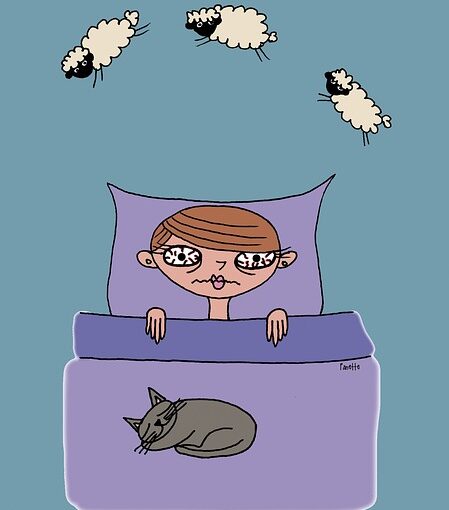by Nathan Chua
It is not uncommon that I get complaints about sleep from my clients. It is understandable that when you come home with some major disagreement with someone at work, or try to sleep when you just had a major fight with your spouse, or experienced a panic attack while on your way home from work, sleep might be a problem.
If you’re one who believes that there is a way for you to have sleep on demand, I have news for you. You can’t demand sleep! Sleep comes when you get tired. If you haven’t yet caught the irony of this article’s title, here’s what it tells us, “You can’t sleep when you’re at war with sleep!” See if you can remember the last time you were primed for a fight or a competition. If your goal is to win the fight or the contest, then there’s that sympathetic nervous system that gets activated, whether you like it or not. It prepares you for action! And how do you think being prepared for action works to make you sleep? Probably impossible.
One of the more common pieces of advice that we get for falling asleep is to prepare for sleep with certain rituals. So much so that the preparation itself becomes so elaborate and the subject of our focus, that one thing is for sure, once something does not fall into its proper place, then you can’t sleep! Oh! I didn’t get the proper darkness right or the bathroom ritual went the wrong way. If sleep becomes something that you need to prepare for every night, then see if you manage to fall asleep when your sympathetic nervous system is primed for action! The sympathetic nervous system is what our bodies call upon for situations that demand action, like when we’re about to get hit by a bus. Try falling asleep while you see a bus hurtling down the street towards you. It’s called falling asleep for a reason…it’s not something within our control.
More often than not, you will struggle with sleep if you believe it is something you can get on demand! What the third wave of cognitive behavioral therapy or what some would call mindfulness-based cognitive therapies suggests is that we can be present in the moment and attend to whatever it is we are attending to. So instead of focusing on the struggle with sleep, or whatever it is that you need to do in order to sleep, we can choose to focus on what it is that we are doing at the moment. Metaphorically speaking, we can stop and smell the flowers.
For sleep problems, one can focus on how your pillow feels like behind your head, or the mattress on your back. You can even focus on your body sensations with a scan of your body from your toes up to the top of your head. Notice that when you do this exercise, your mind will come up with thoughts not just of what it is that is keeping you from sleeping, but also thoughts about what you are doing at the moment too! What’s this? This is crazy! This isn’t going to work! Notice those as thoughts as well, and then just go back to your body sensations.
As Jon Kabat-Zinn defines mindfulness, “Mindfulness is awareness that arises through paying attention, on purpose, in the present moment, non-judgmentally.”
Bottomline is the less willing you are to have these difficult thoughts and feelings, the more they will come to haunt you. Just notice it as part of how you have learned to cope with such thoughts and go back to what you intend to do on your bed at night. See where this takes you!

